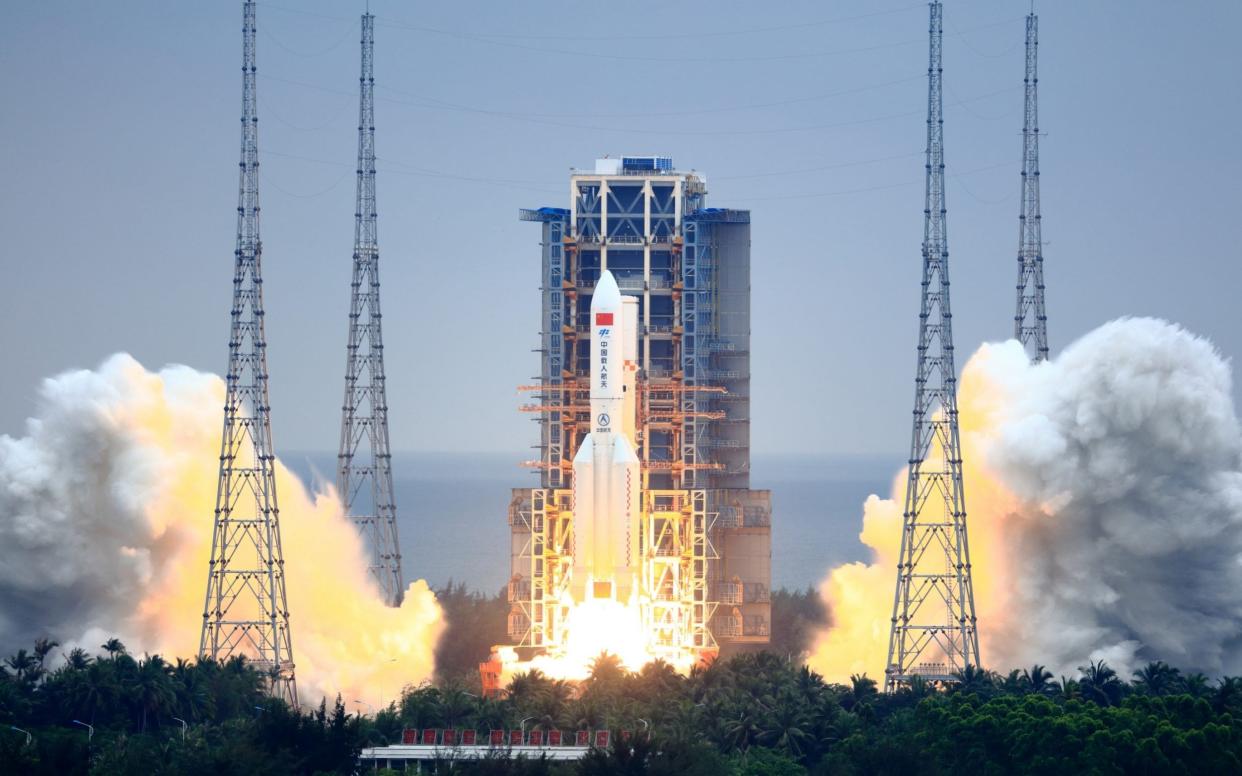Parts of high-speed, 21-ton Chinese rocket could crash land anywhere in the world over next week

A Chinese rocket that launched a building block for the country's first permanent space station is making an uncontrolled re-entry back to Earth - and there is no way of knowing where the debris might land.
The Long March 5B Y2 rocket lifted off on Thursday from China's southern Hainan island, carrying the unmanned "Heavenly Harmony" module for its space station.
While the module separated from the launcher to continue its journey as planned, the launch vehicle's core section also reached orbit and is now unpredictably heading back to Earth.
On Tuesday, the 21-ton Long March 5B was in orbit travelling at around 18,000 miles per hour.
In the coming days, it is expected to make one of the largest uncontrolled reentries of a spacecraft as the Earth's atmosphere drags it down, and could potentially land on an inhabited area.
The Long March 5B could re-enter at any point as far north as Beijing and Madrid and as far south as southern Chile and Wellington in New Zealand.
Jonathan McDowell, an astrophysicist at Harvard University, told The Daily Telegraph that the worst-case scenario for the landing was "sort of comparable to a small plane crash".
Mr McDowell said the "best sense you can get" is by looking at what happened to the Long March 5B's first launch in May last year, which also ended with an uncontrolled re-entry and resulted in debris falling on the Ivory Coast, damaging several buildings.
However, he added that the most likely outcome was that any debris which survives the intense heat of re-entry will fall into the larger oceans - which account for around 70 per cent of the Earth - or areas without human inhabitants.
The astrophysicist criticised China's decision to let the core section of the launcher re-enter uncontrolled.
"I would imagine they take the view that Nasa took back in the 1970s, which is that the Earth is big, this thing probably won't hit anything. Which is true, although it wasn't true last time.
To summarize: this one is bigger than anything recent, but not as big as Skylab and its ilk back in the day.
— Jonathan McDowell (@planet4589) May 3, 2021
"They couldn't be bothered to do the work to make it a safer launch vehicle because they didn't think that the risk was high enough to worry. And my comeback to that is that every other country since the early 1980s, has felt it was worth the worry not to do this."
Beijing says its station could be operational by the end of next year, after around 11 missions to deliver more modules and assemble them in orbit.
The Long March 5B is expected to return to Earth within the next week.

